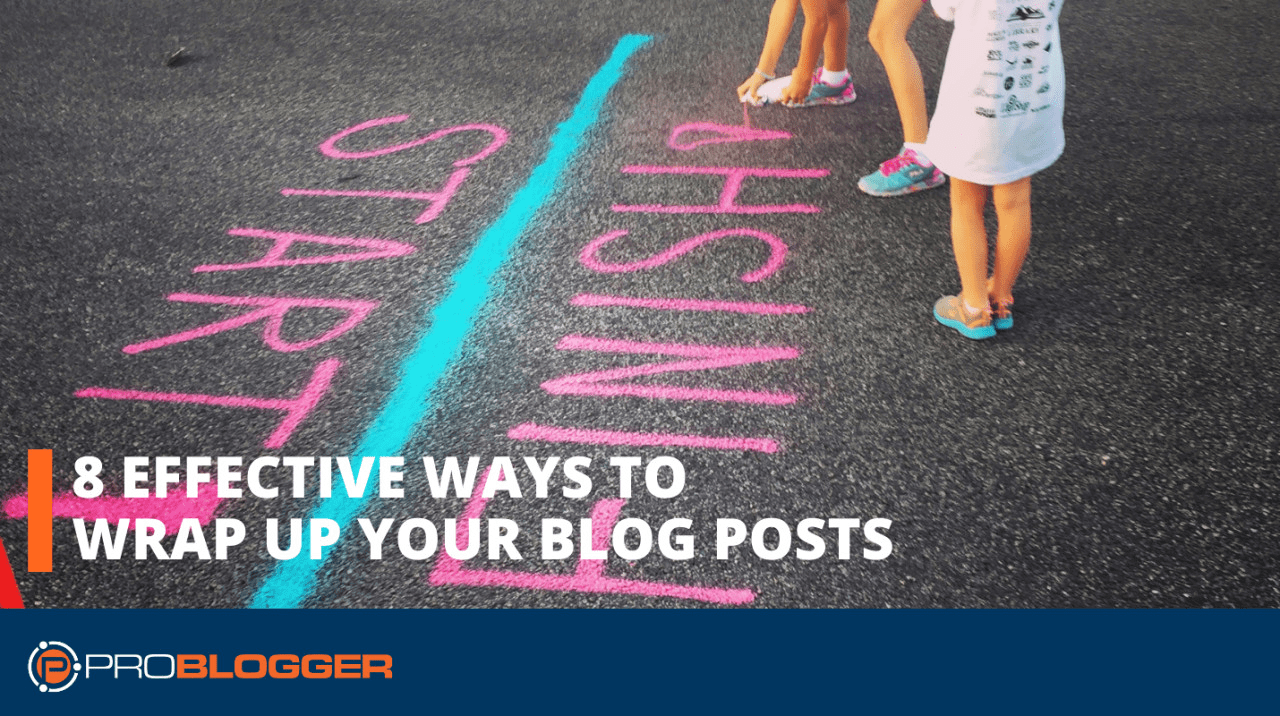ProBlogger: Why You Need to Make ‘Starting’ a Mindset | |
| Why You Need to Make ‘Starting’ a Mindset Posted: 26 Nov 2020 03:00 AM PST The post Why You Need to Make ‘Starting’ a Mindset appeared first on ProBlogger.
This post is based on episode 88 of the ProBlogger podcast. Whereabouts are you on your blogging journey? You may be the very beginning of your journey, and getting ready to create your first blog post. You might be a little further along, and thinking of taking the next step – a second blog perhaps, or maybe a podcast. You might be thinking of launching a course to teach others what you know, or perhaps putting all that knowledge in an eBook and selling it. Whatever stage you're at, there's one thing you can do that will take you further on your journey as an entrepreneur than anything else. Start. A blogger's journeyIn November 2002 I received an email from a friend with the subject line "Check out this blog". At the time I didn't even know what a 'blog' was, and it would have been easy to just delete his email and move on. But curiosity got the better of me, and I opened it to find the same four words followed by a link to a website – TallSkinnyKiwi.com. I clicked the link. Two hours later, I was completely hooked. Not only on the blog (written by a guy called Andrew Jones), but also on the entire concept of 'blogging'. So much so that on that same day I started a blog of my own. I'd love to say that I took to blogging like the proverbial duck to water, but I'd be lying. I wasn't a great writer. I'd never designed or set up a website before, I didn't know how to code. I had no money for a domain or hosting. I didn't know any other bloggers. (I'd only just leaned what a blogger was.) I was worried about what people would think of my ideas. I didn't have a niche, or any idea what I would write about. But I started it anyway. And it completely changed my life. A few years later I became a full-time blogger. Soon after that I was offered a book deal. I got to speak at conferences around the world. And I had millions of people reading my words every month. And all because I started a blog. The first of many startsBut while that's when by life as a blogger started, I've had plenty of other 'starts' over the years. I started writing a book. I started using different social networks, I started business partnerships. I started writing eBooks. I started creating courses. I started a job board. I started an event for bloggers. I started a podcast. And they all contributed to where I am today. Of course, not everything I started was a success. Some things I started never got off the ground, and others fizzled out soon after launch. But it's amazing how many of my 'starts' have created wonderful opportunities for me. A bright idea in the darknessOne of those 'starts' actually started at around two in the morning. I was thinking about what I could write about for ProBlogger when an idea popped into my head. I could write a month-long series of posts where each day I'd give my readers a blogging tip and an activity they could do with their own blog to reinforce the concept. I ended up getting out of bed and writing a post announcing a new series of posts I'd be launching called 31 Days to Build a Better Blog. That first series of posts was so successful that it turned into a second series, and then a third. Later it became an eBook that sold more than 20,000 copies. And then I used what I'd written for the eBook to create a 31-part series of podcasts, which are still the most popular episodes I've ever recorded. And that eBook sparked ideas for other eBooks. I've now created more than 30 of them, and they've sold hundreds of thousands of copies over the years. And all because I started that series of blog posts. A lessonSo why am I telling you all this? Because I want you to start paying attention to the ideas that you can't get out of your head. Don't just get excited by those ideas. Do something with them. In other words, start. And don't discount the ideas you get after you've started. That first series of blog posts could have been the last. But instead I kept evolving the idea, and it created opportunities for me that I never would have thought possible in that moment at two in the morning. I'd like to wrap up this post with a tweet I put out a while back that still resonates with me.
If you've been contemplating doing something but haven't taken it any further, make a start. And keep making starts when those ideas pop into your head. Starting is the most important thing you'll ever do as an entrepreneur. And next week I'll be talking about the second most important thing you'll ever do as an entrepreneur. But in the meantime, choose something you've been thinking of starting and actually make a start. And then let us know what it is in the comments.
Photo by Start Digital on Unsplash The post Why You Need to Make ‘Starting’ a Mindset appeared first on ProBlogger. |
| You are subscribed to email updates from ProBlogger. To stop receiving these emails, you may unsubscribe now. | Email delivery powered by Google |
| Google, 1600 Amphitheatre Parkway, Mountain View, CA 94043, United States | |






